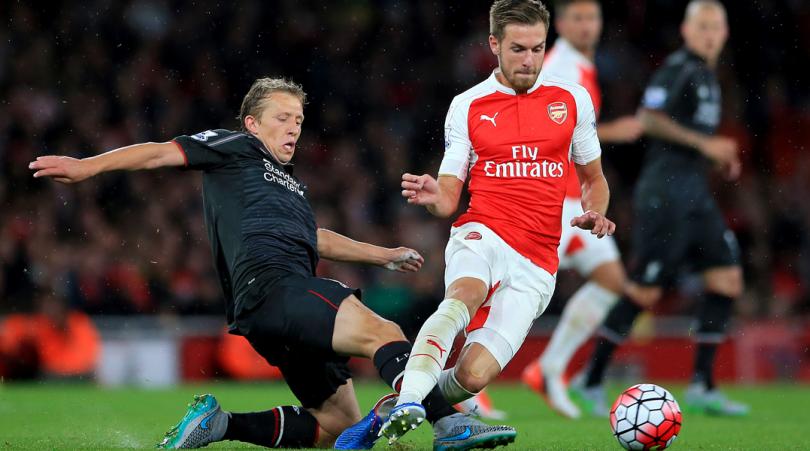Why are so few Premier League teams winning at home this season?
Alex Keble examines why home is where the art is when it comes to gaining three points so far this season...
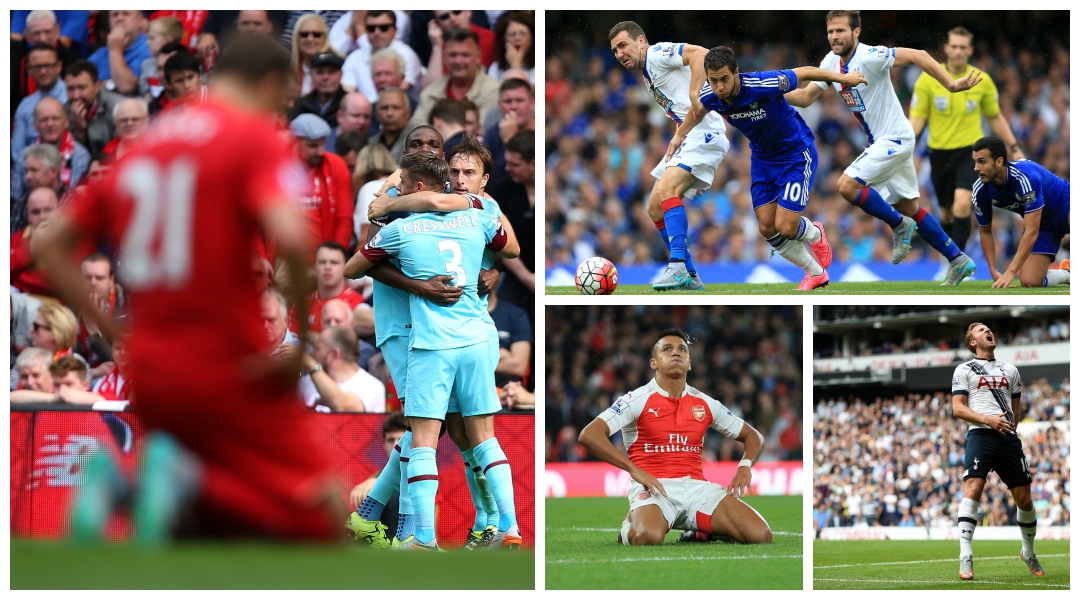
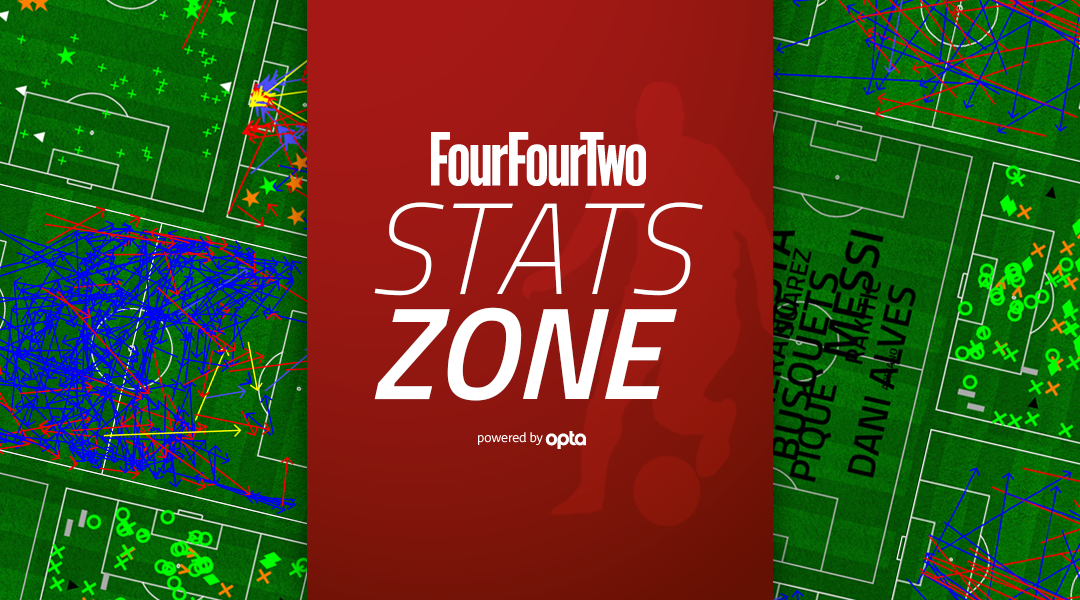
While watching Liverpool shuffle the ball aimlessly back and forth and concede three times on the break to a West Ham United side that looked predictably organised in a counter-attacking setup reminiscent of the Sam Allardyce era, the absence of Premier League home victories in 2015/16 began to make some sense.
Only nine games (22%) have been won by the hosts in the four rounds of matches so far this season, down from an average of 15 (38.5%) over the previous five years. The sample size may currently be too small to declare stylistic or tactical trends are changing in the Premier League, but a pattern is emerging that may explain why clubs have made a peculiarly slow start to their home campaigns.
A preference for possession-based football has gripped English football in recent years, with an influx of foreign managers implementing a European model of a patient and controlling approach. These philosophies range from the extreme (Everton, Manchester United, and Arsenal) to a more varied style that still uses possession as the foundation for success (Manchester City, Southampton, Swansea, Liverpool, Spurs).
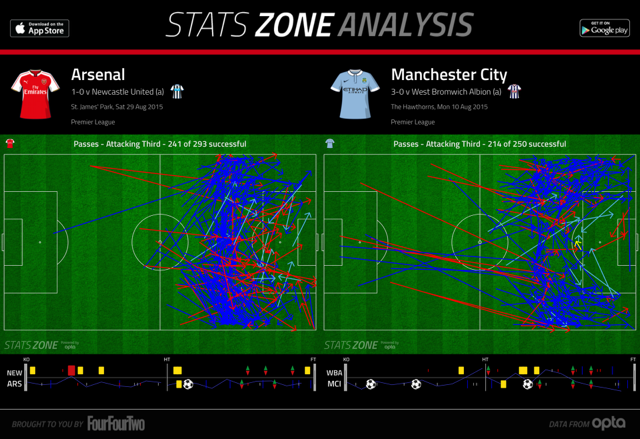
With pre-season tours increasingly long and exhausting, and a hectic reshuffling of players taking place at most clubs, the considered possession approach (requiring greater team cohesion and a complex understanding of managerial methods and team-mates’ movements) may simply need more time to gel.
The opening few weeks of the campaign has seen a number of possession-centric clubs look sluggish and well below their fluid best - most notably Manchester United, Liverpool and Tottenham. This is reflected in the statistics: across the first 40 matches of the campaign the home team have held the most possession 22 times, but have earned three points on only four of these occasions. On the opening weekend, when players were particularly rusty, not a single home team with a possession majority recorded a victory.
Furthermore, as the table below illustrates, in each of the last five seasons the percentage of home wins in the opening four rounds (blue bar) has been significantly lower than in the remaining 34 fixtures (red bar).
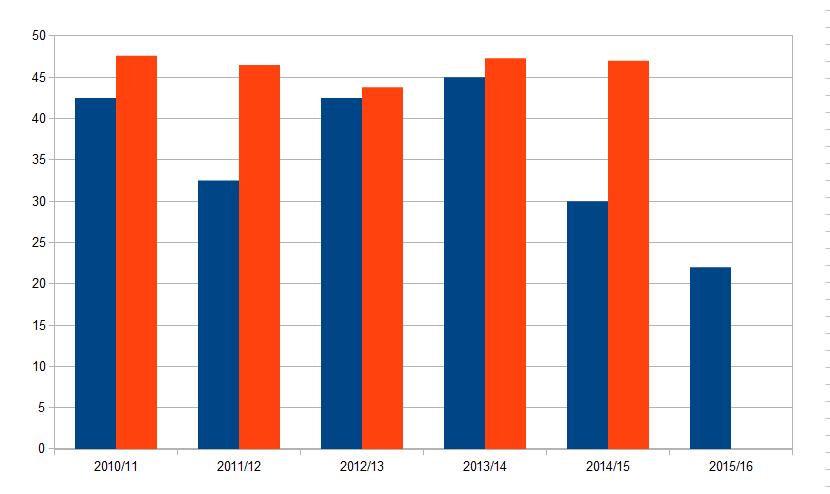
It is possible that an absence of home victories reflects the dominant team’s inability to turn their possession into meaningfully crafted attacks so soon after their summer break, with this year's particular dearth an example of the growing trend towards a possession-centric approach.
The best features, fun and footballing quizzes, straight to your inbox every week.
There are a number of examples that help illuminate this point. Reams of articles have been written by journalists exasperated by the attacking timidity of Manchester United, whose 0-0 draw with Newcastle was characterised by the spluttering interplay of Adnan Januzaj, Wayne Rooney and Memphis Depay.
Bournemouth’s defeat to Aston Villa (in which they held 61% possession) was frustrating for a team that looked in control, as was Everton’s 3-0 win at Southampton and Arsenal’s 0-0 draw with Liverpool.
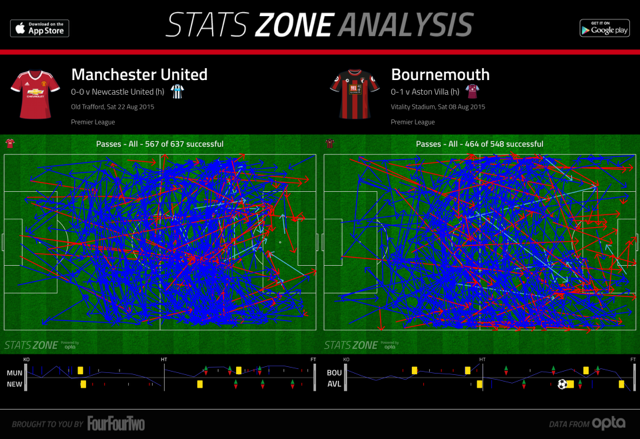
However, the most obvious examples of this trend have occurred at Anfield and the Emirates Stadium where West Ham, averaging 39% possession, recorded stunning victories. Indeed, the Hammers’ eclectic form exemplifies the flip side of this theory. The counter-attacking strategy - employing a standard defensive shape and bursting forward into large open spaces (where picking out a pass perhaps requires less team-mate understanding) - is a simpler model that needs less time to be integrated over pre-season.
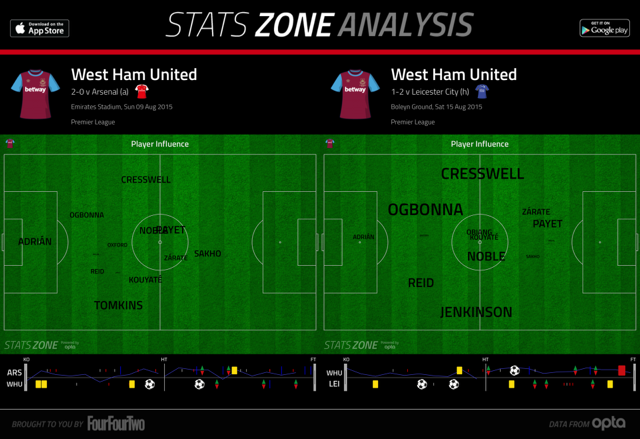
Crystal Palace’s 2-1 victory over the champions at Stamford Bridge was classic Alan Pardew management; hunch in a deep, compact shell and then pounce down the wings when possession is regained. Again, his system may require less pre-season sharpness and might be able to be taught to new signings with greater speed than the complexly fluid positional play that Louis van Gaal craves at Old Trafford.
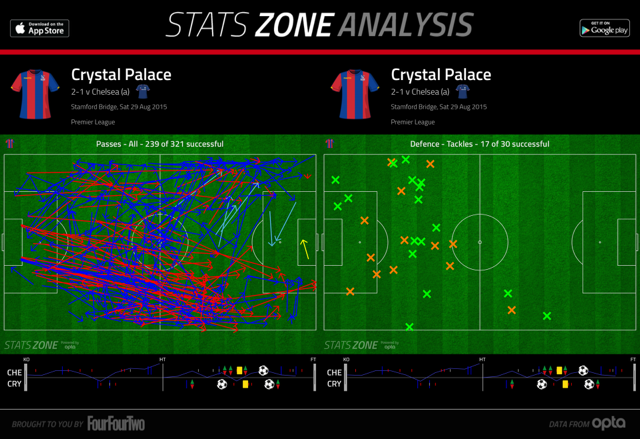
This theory becomes more appealing when individual mistakes and possession loss is taken into consideration. Jose Mourinho famously believes in the mantra that the side in possession is the most vulnerable, because mistakes are made on the ball – and it is mistakes, or possession being won high up the field, that leads to goals. It certainly seems plausible that more goal-conceding mistakes will be made by the team in possession, and that the prevalence of these mistakes is likely to be highest at the beginning of a campaign, when team cohesion is at its lowest. Again, the statistics seem to agree: 30% of the goals scored this season in the Premier League have come from quick counter-attacks, and a shocking 9% from defenders needlessly losing possession within their own third of the pitch.
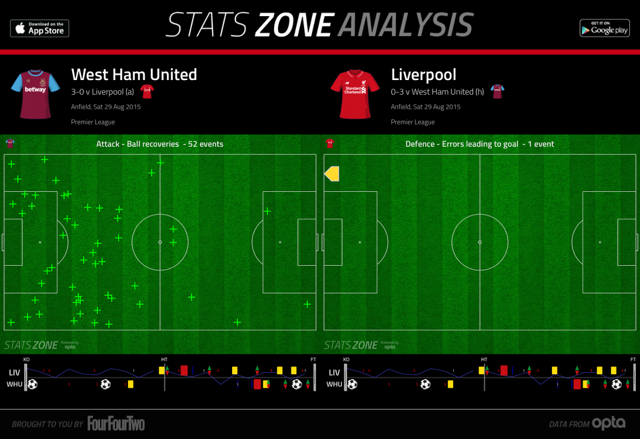
In the particularly extreme case of West Ham, it could be a related but different theory that explains their form. As Slaven Bilic struggles to implement a new brand of attacking 4-3-3 at Upton Park, the learning curve has resulted in consecutive defeats in East London. Away from home, with the Bilic philosophy partially abandoned in favour of a more pragmatic approach, the Big Sam counter-attacking method – ingrained in the muscle memory of these players – has proved a big success.
The ghost of Big Sam
The Bilic/Allardyce argument may be more plausible, but it bears a crucial resemblance to a wider theory regarding team cohesion, the implementation of possession-based tactics and the inevitability of home sides struggling as the season grinds through the gears. It is important to reiterate that this is only a small sample size and, of course, it is a generalisation to assume that all teams look to play in similarly contrasting ways when at home or on the road. However, there is enough evidence across individual matches and the collected statistics to suggest that the creeping osmosis of tiki-taka tactics into English football is impacting the number of home wins recorded - in the short-term at least. But until the tactical strategies click into place in Manchester, Liverpool and West London, we can – perhaps – expect a few more shock results in what has been a brutal and messy opening to the 2015/16 Premier League season.
STATS ZONE Free on iOS • Free on Android
